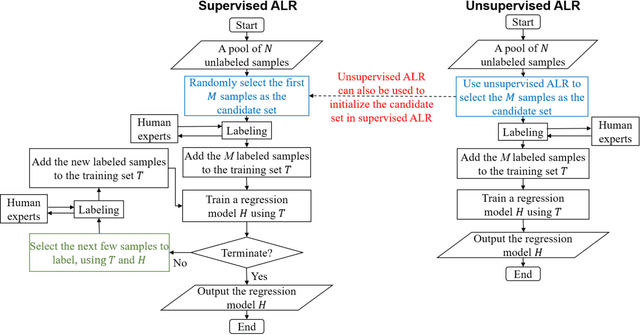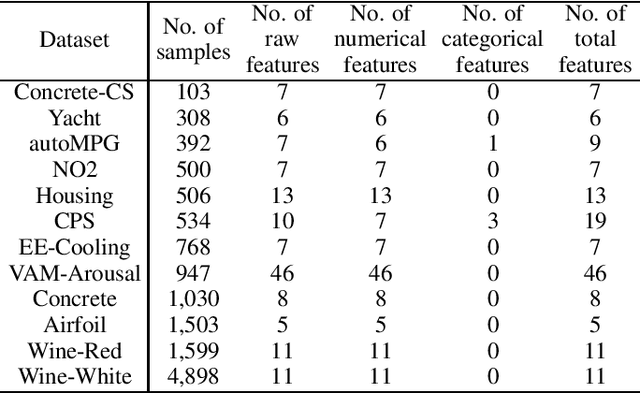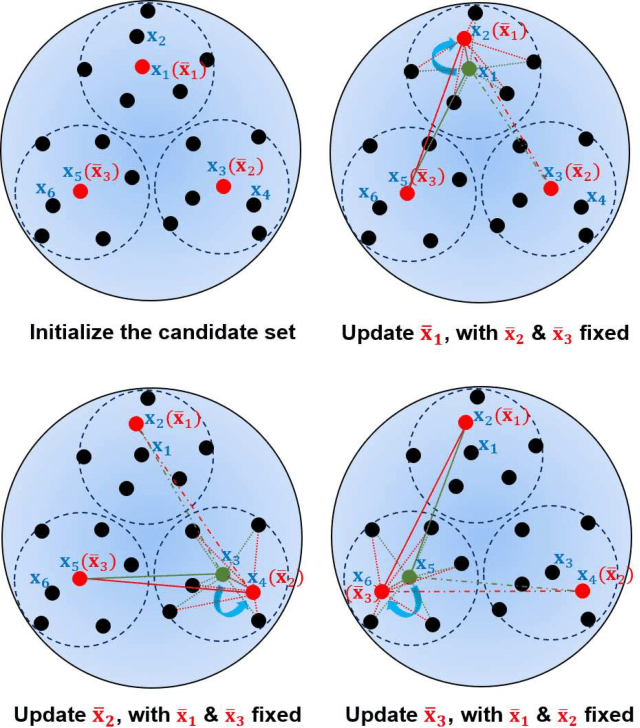Pool-Based Unsupervised Active Learning for Regression Using Iterative Representativeness-Diversity Maximization (iRDM)
Paper and Code
Mar 31, 2020



Active learning (AL) selects the most beneficial unlabeled samples to label, and hence a better machine learning model can be trained from the same number of labeled samples. Most existing active learning for regression (ALR) approaches are supervised, which means the sampling process must use some label information, or an existing regression model. This paper considers completely unsupervised ALR, i.e., how to select the samples to label without knowing any true label information. We propose a novel unsupervised ALR approach, iterative representativeness-diversity maximization (iRDM), to optimally balance the representativeness and the diversity of the selected samples. Experiments on 12 datasets from various domains demonstrated its effectiveness. Our iRDM can be applied to both linear regression and kernel regression, and it even significantly outperforms supervised ALR when the number of labeled samples is small.
 Add to Chrome
Add to Chrome Add to Firefox
Add to Firefox Add to Edge
Add to Edge